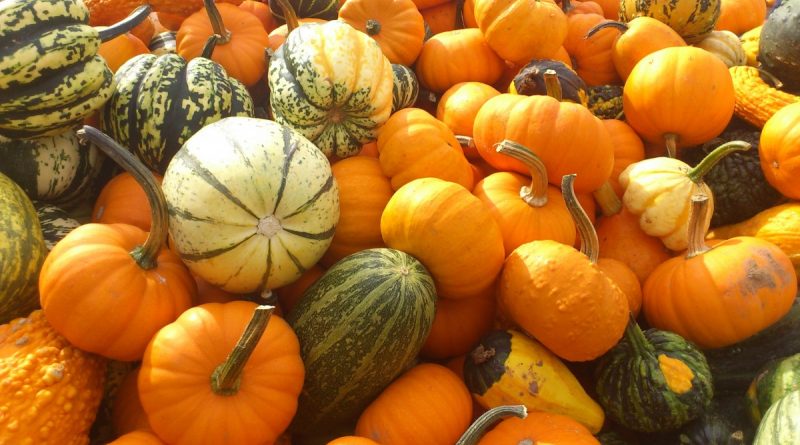8 scientifically proven reasons to eat pumpkin more often
8 scientifically proven reasons to eat pumpkin more often
There are many ways to prepare pumpkin. It can be made into soups, desserts, juiced, baked, roasted, stewed, and added to salads. Some pumpkins, especially sweet and juicy varieties, can be eaten raw. Technical varieties are used to make utensils, such as bottles and flasks, as well as decorations for the interior. Pumpkin seeds are also used for food, eaten raw, roasted, or pressed into oil.
Pumpkin is rich in vitamins. This vegetable is one of the record holders for vitamin A and its precursor carotene. Also, pumpkin has a lot of vitamin C and almost all the B vitamins are present. All this makes it a product that is good for your skin, eyes, and cardiovascular system. Some studies suggest that pumpkin may be good for diabetes.
Pumpkin without reservations can be called a healthy food, its beneficial properties are due to its high fiber content, which slows the absorption of carbohydrates, antioxidants, vitamins, minerals and protein. It has almost no fat and no starch.
1. rich in vitamins and antioxidants
The Indian pumpkin saved the first American settlers not only from starvation, but also from scurvy associated with vitamin C deficiency and from vision ailments that can be caused by vitamin A deficiency. Vitamin A is essential for normal vision and skin health. It is also needed by pregnant and lactating women. Carotene, the main plant source of vitamin A, into which it is converted once it enters the body, is named after carrots. However, pumpkin has about five times as much.
Vitamin C is needed by many of our body systems. It strengthens the immune system, protects our skin from sunlight, is good for our heart and blood vessels, and helps us absorb iron. In addition, both vitamins are powerful antioxidants that protect our bodies from premature aging.
2. Normalizes heart function
The fiber, potassium and vitamin C in pumpkin support cardiovascular health. To take care of your heart and blood vessels, it is important to control your sodium levels. This mineral, which we get mostly in the form of salt, increases blood pressure. However, a large 2017 study found that it is equally important to consume enough potassium, which, on the contrary, lowers blood pressure. Pumpkin is an available food high in this mineral.
3. Protects your eyesight
A 2019 experiment conducted by scientists at the American National Eye Institute showed that a cocktail of vitamin E, vitamin C and carotene, which are abundant in pumpkin, supports eye health and significantly reduces the risk of yellow spot degeneration, an age-related disease that can lead to severe visual impairment or loss. Pumpkin contains lutein and its isomer zeaxanthin, which also protect the eyes from UV rays and degenerative diseases. For these substances to be better absorbed from pumpkin, you should eat it together with vegetable fats, such as seasoning with olive oil.
4. It improves your skin
The beneficial substances in pumpkin protect the skin. Beta-carotene is sometimes called a natural sunscreen because its molecules absorb ultraviolet light and reduce tissue damage. Vitamin C is involved in the production of collagen, a substance that makes our skin firm, elastic and strong.
5. May help control sugar in diabetes
A 2019 study by a team of Chinese doctors found that a mixture of plant extracts-pumpkin polysaccharides and extracts from pueraria roots-reduced blood sugar levels in mice. The study did not involve humans, but it showed the potential of these substances to reduce the burden of disease in people with type 2 diabetes.
6. Beneficial in pregnancy
Pumpkin dishes can safely be recommended to pregnant women, it contains a considerable amount of folic acid, which helps the body to perform many functions. This includes hematopoiesis, and DNA protection, which is especially important during the planning stage of pregnancy, and the prevention of thrombosis. Folic acid also ensures normal intrauterine development of the fetus.
7. Strengthens the immune system
Pumpkin flesh and seeds are rich in nutrients that enhance the protective functions of the body. First of all it is beta carotene. Once converted to vitamin A, it is involved in the creation of white blood cells that fight various infections, viruses and bacteria. In addition, this vitamin can improve antibody response to some vaccines. Ascorbic acid also stimulates the production of white blood cells, which strengthens the immune system and speeds recovery. And zinc contained in pumpkin seeds is a natural immunomodulator. In its deficiency, the production of white blood cells slows down and the body’s susceptibility to infections increases. Among other useful substances with immune-stimulating effect, which pumpkin is rich in, are vitamin E, iron and folic acid.
8. Helps you control your weight
Pumpkin is ideal for those watching their weight. Despite its high nutritional value, it has few calories. The pumpkin fruit consists of 90% water, thanks to which 100 g of the vegetable contains only 22 kcal. In addition, pumpkin is a source of fiber, which induces a feeling of satiety and reduces the amount of food eaten. In addition, its fruits contain carnitine, a substance that accelerates the breakdown of fat and increases the stamina of the body. That is why pumpkin dishes are the basis of many diets. The most important thing is to prepare them correctly. For example, a pumpkin latte or pumpkin pie will do less good than fresh pumpkin juice or baked pumpkin. To make the taste more interesting, add cinnamon, some nutmeg, almonds and honey instead of sugar.
